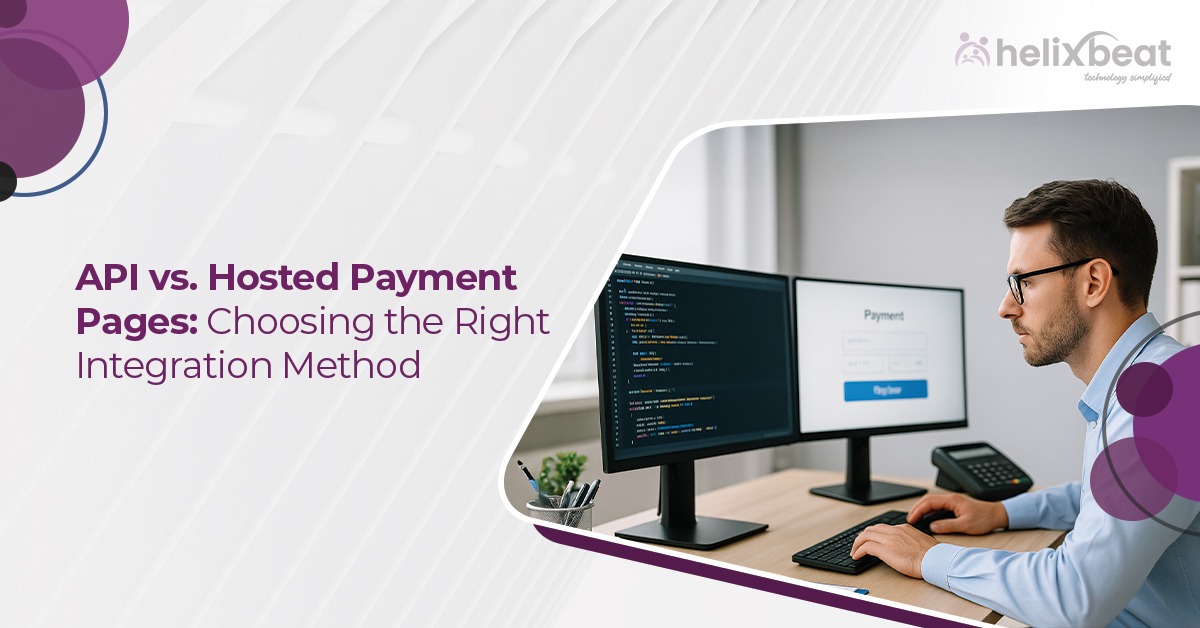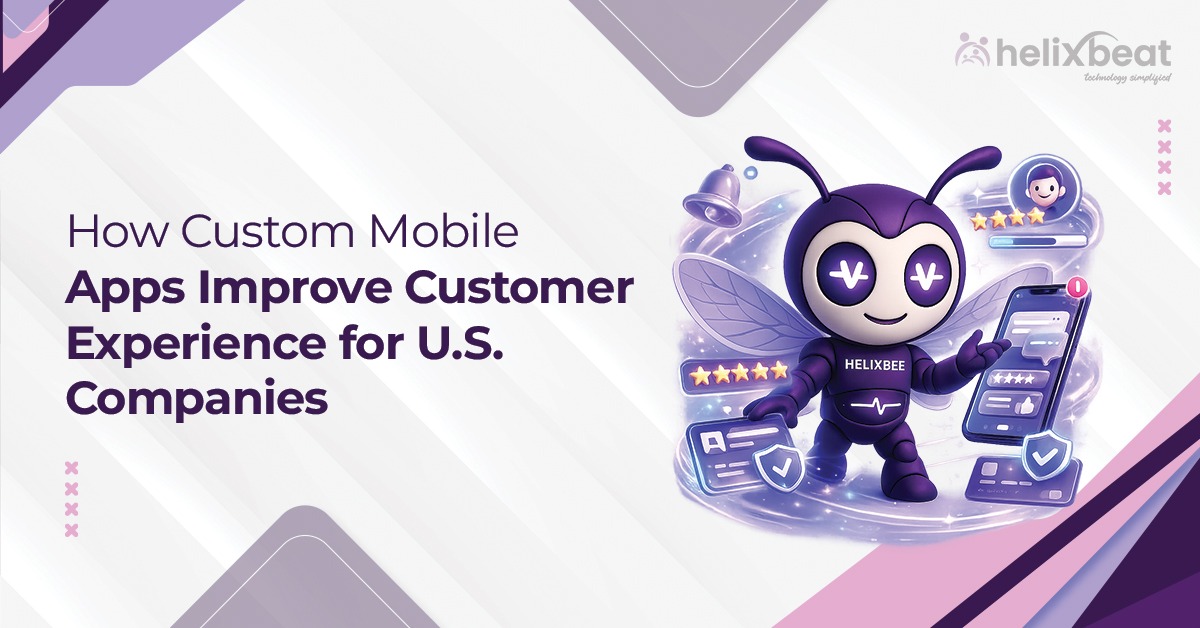Healthcare billing in the U.S. is a mess. Between insurance headaches, confusing patient statements, delayed reimbursements, and rising out-of-pocket costs, healthcare providers are buried under paperwork instead of focusing on patient care. Patients, on the other hand, are often left scratching their heads, unsure of what they owe or how to pay it. That’s why choosing the right electronic payment gateway isn’t just a tech decision—it’s a lifeline for operational sanity.
Enter PayNova, built specifically to simplify healthcare payments. Whether you’re a large hospital dealing with complex insurance claims or a small clinic tired of chasing co-pays, PayNova offers two flexible ways to integrate: API for total control and customization, or Hosted Payment Pages for quick, secure setup.
In this blog, we’ll break down both options so you can choose the right fit—because getting paid shouldn’t be harder than saving lives.

Table of Contents
Understanding the Basics: API vs. Hosted Payment Pages
Payment gateways play a crucial role in securing and streamlining online transactions, ensuring healthcare businesses can offer seamless payment experiences. Depending on business needs, transaction volumes, and customer preferences, different types of payment gateways are available. Here are the two main types:
What is API integration?
API Integration allows the healthcare provider’s website or app to connect directly with the electronic payment gateway. Patients stay within the provider’s interface while the payment is processed in the background. This offers full control over the payment experience, making it seamless and brand-consistent.
API Integration: Full Control and Customization with PayNova
Tailored Payment Experience for Healthcare
For modern healthcare providers—especially hospitals, telehealth platforms, and specialty clinics—having complete control over the payment experience is essential. API integration allows payments to be embedded directly into your systems, ensuring that patients can pay bills within your own branded portal or app. This seamless experience not only builds trust but also reduces drop-off during transactions.
Automation and Real-Time Visibility
One of the biggest strengths of API-based electronic payment gateway integration is automation. With PayNova’s API, you can automate processes like insurance claim handling, co-pay billing, payment reminders, and even verification workflows. Additionally, you gain real-time access to financial data, enabling accurate reconciliation and faster revenue cycle management.
ACH Payment Support for Cost-Efficient Transfers
PayNova’s API is also optimized for ACH transactions, allowing providers to partner with trusted ACH payment providers and the best ACH processing companies. This gives you access to secure, cost-effective bank transfers—perfect for recurring patient billing, high-ticket procedures, or flexible payment plans.
Designed for Healthcare Compliance
Integrating APIs in healthcare isn’t just about convenience—it’s also about compliance. With strict HIPAA and PCI-DSS regulations, any electronic payment gateway must prioritize data security. PayNova’s API is built from the ground up to meet these industry requirements, giving you the peace of mind that your patient payment data is fully protected.
A Scalable Solution for Future Growth
Although API integration requires a longer setup time and developer involvement, the long-term benefits are undeniable. With PayNova, you’re not just getting a payment solution—you’re investing in a scalable infrastructure that evolves with your needs and supports a more efficient, patient-friendly billing process.
Disadvantages of API Integration for Healthcare Providers
- Requires Developer Involvement
API integration is not plug-and-play. It demands skilled technical resources for setup, customization, testing, and ongoing maintenance.
- Longer Implementation Timeline
Compared to hosted solutions, API integration takes more time to go live due to the need for backend development, compliance checks, and system testing.
- Higher Compliance Responsibility
With API control comes greater responsibility. Healthcare providers must ensure full HIPAA and PCI-DSS compliance across their internal systems and processes.
- Increased Upfront Costs
Building a customized payment flow through an API involves higher initial expenses, especially for small practices or providers without an in-house tech team.
- Ongoing Maintenance Burden
APIs require continuous updates and monitoring to remain secure and functional, particularly when integrating with multiple EHRs, billing platforms, or ACH payment providers.
- Steeper Learning Curve
Teams may require additional training to work with API documentation, test environments, and integration tools—especially if they lack prior experience.
What are Hosted payment pages?
Hosted Payment Pages redirect the patient to a third-party webpage (hosted by the payment provider) to complete the transaction. This method is quick to implement, secure by default, and great for providers without in-house technical resources.
Both methods have distinct advantages and challenges, especially when viewed through the lens of the healthcare industry.
Hosted Payment Pages: Simplicity and Security
If you’re a small clinic or specialty practice looking for fast deployment and minimal tech headaches, Hosted Payment Pages are the way to go. PayNova’s hosted pages come fully equipped with the latest security features and healthcare compliance standards, offering a trusted electronic payment gateway experience with little to no development effort.
Advantages of Hosted Pages:
- Easy Setup: Go live in days, not weeks.
- Built-In Compliance: HIPAA and PCI-DSS security handled by the payment provider.
- Multiple Payment Options: Credit, debit, ACH — all supported.
- Lower Cost of Ownership: No need to maintain infrastructure.
- Trusted by Leading ACH Providers: Most ACH payment providers prefer hosted models for faster integration.
Challenges:
- Limited control over UI/UX.
- Redirection can reduce conversion if users feel uncomfortable leaving your website.
- Difficult to customize specific workflows (e.g., installment billing, dynamic co-pays).
Matching Method to Your Healthcare Use Case
Let’s break down which integration method fits best with various payment solutions for healthcare based on the type of healthcare organization.
Large Hospitals and Health Systems
These organizations typically have dedicated IT teams and require advanced capabilities like real-time claim validation, automated reconciliation, and integration with multiple systems. For them, API is the obvious choice.
Why? Because an electronic payment gateway powered by API enables:
- Direct integration with EHR systems.
- Automated insurance handling and pre-authorization.
- Patient-specific billing workflows.
- Use of best ACH processing companies for large-value transactions.
Mid-Sized Clinics and Telehealth Providers
These groups often straddle the line between complexity and resource limitations. A hybrid approach might work well — using APIs for internal automation and Hosted Pages for patient-facing billing.
PayNova supports both options, offering modular integration that lets you mix and match based on your workflow.
Small Practices or Individual Providers
With limited tech resources, these providers benefit most from Hosted Pages.
Hosted payment options deliver:
- Easy onboarding.
- Plug-and-play experience.
- Secure electronic payment gateway access with minimal effort.
- Integration with popular ACH payment providers for bank transfers.
Why PayNova Works for Both
Whether you need an API or hosted experience, PayNova is designed to serve as a flexible and secure electronic payment gateway for healthcare.
- HIPAA & PCI-DSS Compliant
- Real-time ACH support from best ACH processing companies
- Embedded fraud prevention tools
- Integration-ready for telehealth and remote monitoring platforms
- Patient-friendly UI/UX for high satisfaction
With PayNova, you don’t have to choose between compliance and convenience.
Key Features to Look for in an Electronic Payment Gateway
When evaluating integration methods, keep an eye out for features that go beyond just “processing transactions.”
- Insurance Preauthorization Tools
- Recurring Payment Support
- Integrated Patient Portals
- ACH Capabilities from top ACH payment providers
- Revenue Cycle Analytics
- Support for Payment Plans
- Out-of-Network Billing Support
- Mobile Optimization
These features, combined with the right integration method, can elevate your overall payment solutions for healthcare.
Choosing the Right ACH Partner
For practices that deal with recurring payments, large balances, or direct bank transfers, working with one of the best ACH processing companies is crucial.
PayNova partners with top-tier ACH payment providers to enable:
- Secure, encrypted bank-to-bank transfers.
- Lower transaction fees compared to cards.
- Direct integration into the EHR or billing system.
- Auto-verification of account status and identity.
With ACH, practices can reduce credit card fees, improve cash flow, and make it easier for patients to pay over time.
Final Thoughts: Which Should You Choose?
There is no one-size-fits-all answer. The right choice between API and Hosted Payment Pages depends on:
- Your practice size
- Internal tech capabilities
- Budget
- Patient volume
- Required billing flexibility
Here’s a quick cheat sheet:
| Criteria | API Integration | Hosted Payment Page |
| Customization | High | Low |
| Setup Time | Moderate to High | Low |
| HIPAA/PCI-DSS Compliance | Your Responsibility | Provider’s Responsibility |
| Integration Complexity | High | Low |
| Best For | Large practices, hospitals | Small to mid-sized clinics |
| ACH Support | Full control with ACH payment providers | Pre-configured ACH via best ACH processing companies |
Whether you choose API or a Hosted Payment Page, PayNova offers the flexibility, security, and functionality to serve as your all-in-one electronic payment gateway. With specialized tools for insurance billing, ACH support, and patient communication, PayNova delivers one of the most comprehensive payment solutions for healthcare in the market.
FAQs
1. What is the main difference between API integration and Hosted Payment Pages?
API allows full control and embeds the payment flow into your app or site, while Hosted Payment Pages redirect users to a third-party secure page for payments.
2. Which integration method is better for large hospitals or enterprise health systems?
API integration is ideal for large hospitals as it supports deep EHR integration, real-time data, automation, and customized payment solutions for healthcare.
3. Are Hosted Payment Pages secure enough for patient data and payments?
Yes, PayNova’s Hosted Payment Pages are fully HIPAA and PCI-DSS compliant, making them secure and reliable for processing healthcare transactions.
4. Can PayNova’s electronic payment gateway handle ACH transactions?
Absolutely. PayNova integrates with leading ACH payment providers and the best ACH processing companies to support secure, low-fee ACH transactions.
5. How long does it take to implement API integration vs. Hosted Payment Pages?
API implementation takes more time due to customization and testing, while Hosted Pages can go live in just a few days with minimal development.
6. What if my clinic needs both API and Hosted Page features?
PayNova offers modular integration, allowing you to combine both methods. Use API for backend automation and Hosted Pages for simple patient billing.
7. Why is choosing the right payment method important for healthcare providers?
It impacts operational efficiency, patient experience, compliance, and revenue flow. Choosing the right electronic payment gateway streamlines all of this.














